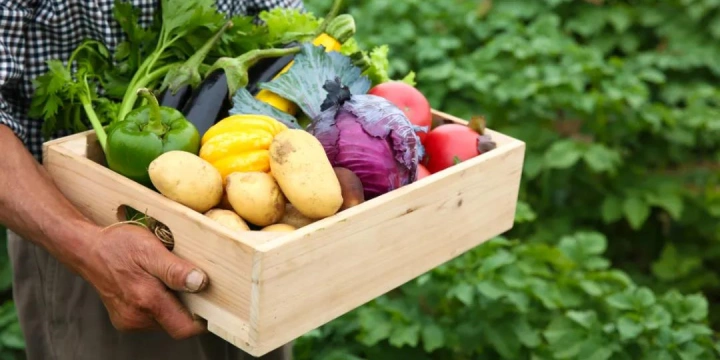In the quest for more sustainable agricultural practices, the need to reduce reliance on chemical pesticides and synthetic inputs has never been greater. Chitosan Hydrochloride, a water-soluble derivative of chitosan, offers a promising solution. This natural plant inducer is gaining attention for its ability to stimulate the endogenous defense responses of plants, promoting healthier crops and reducing the need for chemical interventions. As a versatile, eco-friendly ingredient, Chitosan Hydrochloride is becoming an essential tool in organic farming and sustainable agriculture.
What is Chitosan Hydrochloride?
Chitosan Hydrochloride (CHC) is derived from chitosan, a biopolymer obtained from the shells of crustaceans such as shrimp and crabs. By modifying chitosan in an acidic environment, it becomes water-soluble, enabling it to be more easily absorbed and utilized by plants. This solubility makes CHC particularly useful in agricultural applications, as it can be applied through various methods like foliar sprays or soil treatments, allowing for efficient delivery of its benefits.
How Does Chitosan Hydrochloride Work?
Chitosan Hydrochloride works by activating a plant’s innate immune system, a process known as induced systemic resistance (ISR). When applied to plants, CHC triggers the production of specific enzymes and proteins that strengthen the plant’s natural defense mechanisms. These responses help the plant resist pest attacks, fungal infections, and environmental stresses, improving overall plant health.
- Induced Defense Mechanisms: CHC induces the synthesis of antimicrobial compounds, such as phytoalexins, which directly combat pathogens. It also promotes the activity of protective enzymes, enhancing the plant’s resilience to disease.
- Enhanced Resistance to Pests and Pathogens: By activating the plant’s defense system, CHC increases its ability to ward off a wide range of pests and pathogens. This can reduce the need for chemical pesticides, which are often harmful to the environment and beneficial organisms.
- Stress Tolerance: In addition to its protective effects, Chitosan Hydrochloride helps plants withstand abiotic stresses like drought, salinity, and temperature fluctuations, allowing for more robust growth even in challenging conditions.
Benefits of Chitosan Hydrochloride in Organic Farming
Chitosan Hydrochloride is particularly well-suited for organic farming, where the use of synthetic pesticides and fertilizers is limited. As a natural product, it aligns with the principles of organic agriculture, offering multiple benefits to both farmers and the environment.
- Reduction in Chemical Pesticide Use: One of the most significant advantages of using CHC in agriculture is its ability to reduce the reliance on chemical pesticides. By enhancing the plant’s natural defenses, CHC offers a safer and more sustainable alternative to chemical pest control.
- Improved Crop Quality: CHC not only enhances pest resistance but also improves the overall health of plants, leading to higher yields and better-quality produce. Healthier plants are more likely to have increased resistance to post-harvest diseases, leading to longer shelf life and fewer losses after harvest.
- Environmental Sustainability: As a biodegradable and environmentally friendly substance, Chitosan Hydrochloride minimizes the environmental impact of farming. It does not accumulate in the soil or water, unlike many synthetic chemicals, making it a safer option for the surrounding ecosystem.
Applications of Chitosan Hydrochloride in Agriculture
Chitosan Hydrochloride can be applied in various ways to maximize its benefits:
- Foliar Sprays: The most common application method, where CHC is dissolved in water and sprayed directly onto plant leaves. This allows the active compounds to be absorbed quickly and initiate the plant’s defense response.
- Soil Treatment: CHC can be applied to the soil to improve soil health and stimulate the growth of beneficial microorganisms. This method not only helps plants grow but also enhances the overall ecosystem of the soil.
- Seed Treatment: Treating seeds with CHC before planting can boost germination rates and early plant growth, setting the stage for healthier and more resilient crops.
- Post-Harvest Preservation: CHC is also used in post-harvest applications to extend the shelf life of fruits and vegetables by reducing microbial contamination and delaying the ripening process.
A Future for Sustainable Agriculture
As the global agricultural sector faces mounting pressure to produce more food while minimizing environmental harm, Chitosan Hydrochloride offers a natural, sustainable solution. Its ability to enhance plant health, boost disease resistance, and reduce pesticide use makes it an invaluable tool in organic farming and beyond. With ongoing research into its full range of benefits, CHC is poised to play a key role in the transition toward more sustainable, eco-friendly farming practices.
By embracing natural plant inducers like Chitosan Hydrochloride, farmers can contribute to healthier ecosystems, higher-quality crops, and a reduction in the reliance on harmful synthetic chemicals. As the demand for organic and sustainably produced food continues to grow, Chitosan Hydrochloride stands out as a key ingredient in building a more sustainable agricultural future.







